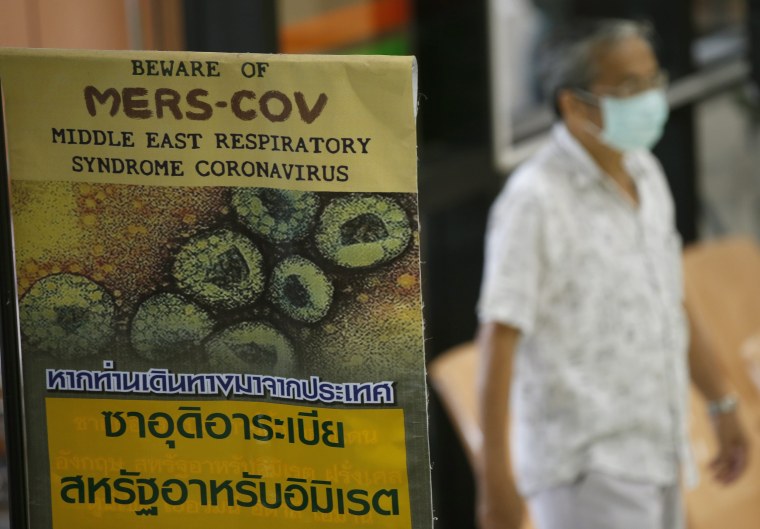Officials in Thailand are tracking down people and putting them into quarantine after a traveler there was diagnosed with Middle East Respiratory Syndrome virus or MERS.
It’s a serious concern. While MERS has not yet sparked a feared pandemic, it can cause severe outbreaks.
A single person spread MERS to 186 others in South Korea last year — and 36 of them died. Officials ended up putting 17,000 people into quarantine to prevent further spread.
"The new case of MERS is a reminder of the continued risk of importation of the disease from countries where it still persists," said Dr. Poonam Khetrapal Singh, director of the World Health Organization’s South-East Asia Region.
"All countries need to further enhance surveillance for severe acute respiratory infections, focus on early diagnosis, and step up infection prevention and control procedures in health-care facilities to rapidly detect any case of importation and effectively prevent its spread."
The traveler, a 71-year-old citizen of Oman, arrived in Bangkok last week.
His son, as well as various taxi drivers, hotel staff and passengers on the same plane are among those quarantined for two weeks, Amnuay Gajeena, director-general of Thailand's Disease Control Department, told reporters.
WHO says 1,626 MERS cases have been diagnosed in 26 countries. Almost all are in the Middle East or involve people who traveled from the region.
The virus has killed 586 people since 2012.
MERS is in the same family of viruses as the severe acute respiratory syndrome (SARS) virus that spread around the world from China in 2003, infecting nearly 8,000 people and killing nearly 800 of them.
MERS doesn't usually spread that easily, but it's known that people in hospitals and clinics who have other conditions, such as diabetes, kidney disease or lung disease, are especially vulnerable. MERS has spread in Saudi Arabia this way several times.
Camels can carry and spread the virus but scientists still are not entirely sure how everyone catches it.
It spreads like any respiratory disease -- when people cough or sneeze, and on droplets of saliva or mucus. Medical interventions that generate a lot of these droplets, such as putting a person on a ventilator, can spread these viruses in a hospital.

